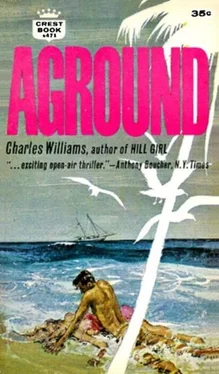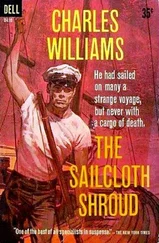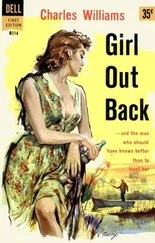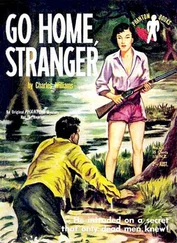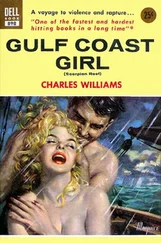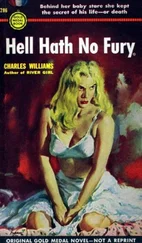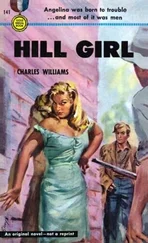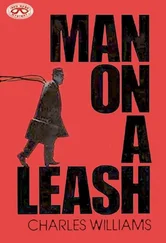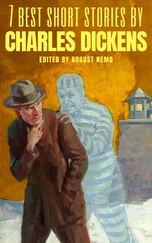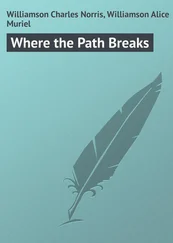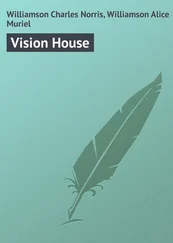It was hopeless. He was never going to pump it overboard until it was light down there and he could see those papers and get them all out at once. Dipping the towel over the side to wet it, he scrubbed at his legs and arms in an attempt to get some of the gasoline off them, and put his clothes back on. The taste of defeat was bitter in his mouth and he wanted to smash his fists against the deck. Maybe they would never get the Dragoon off. They were doomed to stay here forever—or until some random spark blew them into flaming wreckage.
No! He stood up. They weren’t whipped yet; there was still the fresh water. He slipped forward and knelt beside Rae Osborne. “I may have got a third of it out,” he added, after he had told her about it. “Pumping some of the fresh water overboard will help too. We’ve still got a chance.”
“Of course we have. She’s coming up all the time.”
He’d been oblivious to the passage of time, and wondered how long they had now until high tide. “How long has it been since there was a shot from Morrison? I forgot about him.”
“Nearly a half hour.”
That was ominous. He hated leaving her up here alone, trying to watch both ends of the boat at once, but he had to get that water out. Every pound was important. Then he had an idea. “Did you ever do any fishing?”
“Once or twice.” She sounded puzzled. “Why?”
“That’s what you’re going to do right now.” He went aft to the cockpit and groped around for a piece of line that was long enough. Making one end fast around the anchor warp, he came forward, paying it out, and put it in her hand. “Pull it taut, and just hold it. If he gets on back there, you’ll feel him.”
“Fine. Where will you be?”
“In the galley. Just yell, and I’ll be here in five seconds.”
He slipped down the forward hatch and felt his way back to the galley. The pump was over the sink. He groped around until he found several pots, filled them with water, and set them aside for insurance. There was no telling how much was in the tanks, and if he pumped them dry before he realized it, they would be in trouble. He began pumping into the sink and letting it run overboard. The gasoline fumes weren’t as bad here as in the after cabin, but they were still too strong to breathe for very long. He opened the porthole above the sink and leaned forward to get his face in front of it. He was all right then. A timber creaked as the schooner righted herself a little more on the rising tide. He wondered how much longer they had, and increased the tempo of his pumping. Sweat dripped from his face. If he could get even a hundred gallons overboard it would lighten the schooner by at least another eight hundred pounds. Then it occurred to him that if many of Morrison’s bullet holes were below the water line as the tide came up and she righted herself, salt water might be running into the bilges faster than he was pumping out the fresh. Well, there was nothing he could do about it. Maybe it was hopeless, and had been from the first. It was beginning to seem now that he had been aboard this grounded boat forever, and he wondered if he would even recognize the feel of one that was afloat and free beneath his feet.
He heard her footsteps on deck, and then she spoke softly near the porthole. “Skipper?”
Morrison, he thought, and felt for the gun against his stomach. “Yes?”
“Everything’s all right. I just wanted to tell you it’s getting pink in the east. I can see the water a little now, and it seems to be hardly moving.”
He hurried on deck. She was right. It was still too dark to see the sand spit, but there was definitely a touch of color in the east. He strained his eyes outward toward the surface of the water, and could make out that the tide was flooding very slowly now. They’d be at the peak in less than half an hour.
“Here we go,” he said. “Keep your fingers crossed.”
“Right. But is there anything I can do of a more practical nature?”
“There will be, very shortly. Just wait here. It’ll be almost an hour before he has light enough to use that scope-sighted rifle, so I’m going to haul with the anchor windlass this time. We’ll get this schooner off or pull her in two.”
He hurried aft and gathered up the free end of the warp. Then he returned to the bow, threw five or six turns on the windlass drum, set the ratchet, and handed her the end. “Just hang on,” he said. He inserted the bar in one of the slots at the edge of the drum, and winched it upward. The warp came taut. Going aft again, he slacked the tackle and cast it off. The warp was clear the full length of the deck except at the corner of the forward deckhouse. It wasn’t much of a fairlead, but it would have to do.
She was on an absolutely even keel, as nearly as he could tell. If she was ever going to come off, she should do it now. He wondered if he should dog down the ports along that side. No, it would take a lot more weight on that boom than he had now to bring her down that far. “Hang on,” he called out to Rae Osborne. “We’re going to take a list.”
“Okay, Skipper,” she called back.
He slacked off the main sheet, and hauled on the guy. The main boom with its dangling cluster of ammunition boxes swung slowly outward. The deck began to list. The boom came up against the sheet and stopped. He ran back and pulled some more slack through the blocks, and hauled the guy again. The boom came directly outboard and the deck rolled down until the scuppers were almost awash. Then he wanted to cry out with joy; there had been a definite tremor under his feet, the feeling of a boat that was alive. She’d moved!
Rae Osborne called out excitedly. “I felt something!”
He laughed. “What you felt was a schooner trying to see if it remembers how to float.”
He quickly tied off the guy and made the main sheet fast to hold the boom in position. The ammunition boxes dangled just above the water, directly abeam. He ran forward. It was growing light now, and the tide was at a standstill. They had to get her off before it started to drop. Ten or fifteen minutes at the most, he thought.
He slid the bar into a slot in the drum, and heaved upward. The ratchet clicked, and clicked again. Just taking up the slack, he thought. Come on, baby. You can do it . The warp ran aft as rigid as iron. He took a fresh purchase and heaved. The ratchet clicked three times in rapid succession, and then once more, and Rae Osborne cried out, “Ingram! She moved—” Her voice broke, and he realized for the first time that she was crying.
They got a foot. Another foot. She stopped. He heaved upward with his shoulder under the bar, praying the anchor would hold and that the warp wouldn’t part. She came free, and moved back a few inches. Her keel’s still dragging in the sand, he thought. But if they could get her back another fifteen feet they’d have it made. Sweat was pouring off his face. Rae Osborne was leaning back with her feet braced against the deck, pulling against the windlass with all her strength. “You don’t have to pull,” he gasped. “Just keep a strain.” “I know,” she said brokenly, “but I can’t help it.” They were gaining steadily now. Five feet of warp came in over the stern. She stopped again. He put his shoulder to the bar. God, he prayed, don’t let her hang up now. Just a few more feet. Just a few more—She came free. She moved ten feet. Fifteen. The line began to come in smoothly, almost easily. The keel was off the sand now, and she was completely afloat. He dropped the bar and ran aft. Jumping down into the cockpit, he caught the warp and hauled.
She was moving freely, and they could pull her faster without the windlass as long as they kept her momentum alive. Rae Osborne ran back and joined him. They pulled side by side, gasping for breath, while the coil of dripping nylon grew larger in the cockpit. Then they were in the channel, with at least six feet of water under the keel. The warp began to lead downward. He took a turn and a hitch around the cleat, and stood up.
Читать дальше
